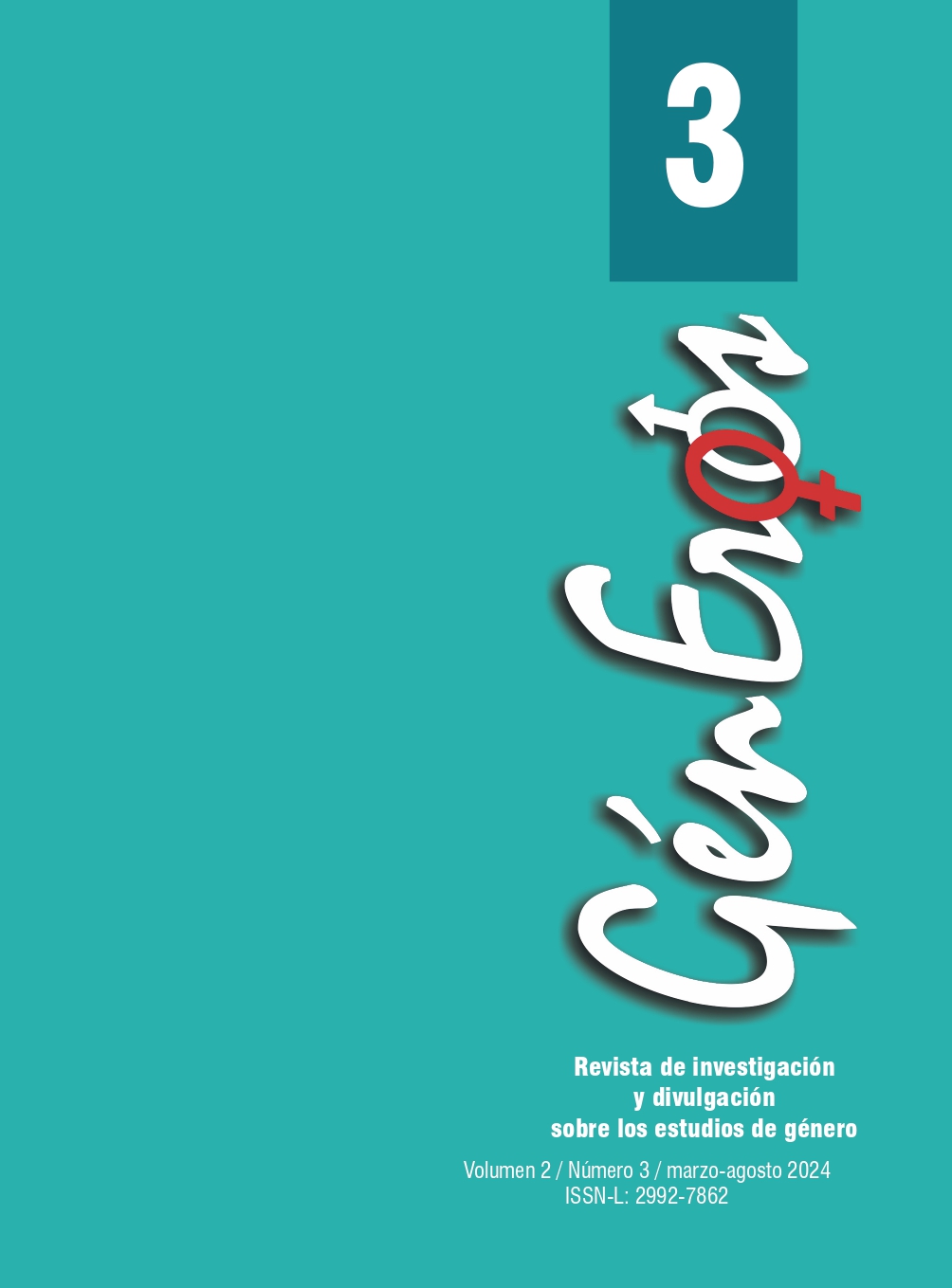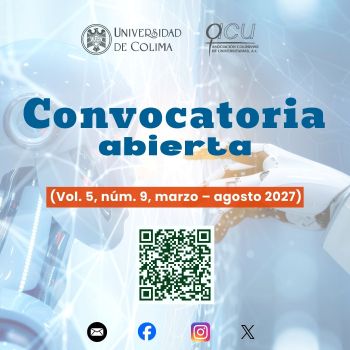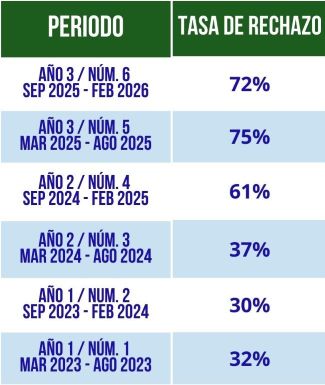“Si mañana soy yo, si mañana no vuelvo, destrúyelo todo”. Emociones y género en mujeres activistas en México
DOI:
https://doi.org/10.53897/RevGenEr.2024.03.03Palabras clave:
emociones, reglas del sentir, trabajo emocional, activismo feminista, cultura emocionalResumen
El objetivo del artículo es analizar cómo las emociones de las mujeres activistas mexicanas son construidas, tanto por el género como por el contexto sociocultural. La teoría de la acción aplicada en esta investigación se basa en entender las emociones como construcciones socioculturales (Hochschild, 1979, 1983) y en aplicar diferentes tipologías que resultan útiles a la hora de analizarlas, y que llegan a sentir (Jasper, 2018). A lo largo del texto, discutiremos cómo las activistas mexicanas dan forma a sus emociones morales, como el miedo, el dolor y la ira, y algunas estrategias de trabajo utilizadas para manejarlas, así como la forma en que interactúan con compromisos afectivos, como el amor, la hermandad y la confianza. Concluiremos discutiendo algunos patrones en el cambio de la cultura emocional de la nueva generación de las activistas que están rompiendo reglas del sentir de género.
Descargas
Métricas
Citas
Albrecht, G. (2019). Earth Emotions: New Words for a New World. Ithaca, Cornell University Press.
Arteaga, N. (2010). “Por eso la maté”. Una aproximación sociocultural a la violencia contra las mujeres. Miguel Porrúa Editor.
Bayard De Volo, L. (2006). The Dynamics of Emotion and Activism: Grief, Gender, and Collective Identity en Revolutionary Nicaragua. Mobilization, 11(4), 461-474. DOI: https://doi.org/10.17813/maiq.11.4.q21r3432561l21t7
Feldman, L. (2017). How emotions are made: The Secret Life of the Brain. Houghton Mifflin Harcourt.
Flam, H. (1998). Mosaic of fear: Poland and East Germany before 1989. Columbia University Press.
Flam, H. (2005). “Emotion’s map: a research agenda”. En H. Flam & D. King (Ed.), Emotions and social movement (pp. 19-40). Routledge.
Gamson, W. (1992). Talking Politics. Cambridge University Press.
González, A.M. (2012). Emotional Culture and the Role of Emotions in Cultural Analysis. En A. M. González (Ed.), The Emotions and Cultural Analysis (pp. 1–18). Routledge.
Goodwin, J. y Pfaff, S. (2001). Emotion work in highrisk social movements: managing fear in the U.S. and East German civil rights movements. En J. Goodwin, J. M. Jasper y F. Polletta (Ed.), Passionate Politics: Emotions and Social Movements (pp. 282-302). University of Chicago Press.
Gordon, S. L. (1990). Social Structural Effects on Emotions. En Kemper T.D. (Ed.), Research Agendas in the Sociology of Emotions (pp. 180-203). SUNY Press.
Gould, D. (2009). Moving Politics: Emotion and ACT UP’s Fight Against AIDS. University of Chicago Press.
Gravante, T. (2018). Desaparición forzada y trauma cultural en México: el movimiento de Ayotzinapa. Convergencia Revista de Ciencias Sociales, 77, 13-28. DOI: https://doi.org/10.29101/crcs.v25i77.9728
Gravante, T. (2020). Forced Disappearance as a Collective Cultural Trauma in the Ayo-tzinapa Movement. Latin American Perspectives, 47(6), 87-102. DOI: https://doi.org/10.1177/0094582X20951773
Gravante, T. y Poma, A. (2015). Autogestión y lucha por la defensa del territorio. Un análisis de la experiencia de tres colectivos en la Zona Metropolitana de Guadalajara incorporando la dimensión emocional. WATERLAT-GOBACIT Network Working Papers, 2, (18), 19-38. Waterat Globacit.
Gravante, T. y Poma, A. (2016). Incorporando la dimensión emocional para comprender la protesta. Un análisis de la participación en la marcha en solidaridad con Ayotzinapa del 26 de septiembre de 2015. Revista electrónica de psicología Iztacala, 19(3), 1065-1089.
Gravante, T. y Poma, A. (2017). Protest, emotion and change: an analysis of two women’s collectives fighting against machismo in Oaxaca, Mexico. Interface, 9(1), 204 – 229.
Gravante, T. y Poma, A. (2018). Manejo emocional y acción colectiva: las emociones en la arena de la lucha política. Estudio Sociológico, 36(108), 593-616. DOI: https://doi.org/10.24201/es.2018v36n108.1612
Gravante, T. y Poma, A. (2019). Emociones, trauma cultural y movilización social: el movimiento por las víctimas de Ayotzinapa en México. Perfiles Latinoamericanos, 27(53), 1-23. DOI: https://doi.org/10.18504/pl2753-007-2019
Gravante, T. y Poma, A. (2020). El papel del activismo socioambiental de base en la nueva ola del movimiento climático (2018-2020). Agua y Territorio, 16, 11-22. DOI: https://doi.org/10.17561/at.16.5109
Gravante, T. y Poma, A. (2023). The Role of Emotions in Grassroots Activism in Mexico City. En O’Dwyer, E., y Gustavo Silva Souza, L. (Ed.), Psychosocial Perspectives on Community Responses to Covid-19: Networks of Trust and Social Change (pp. 15-26). Routledge. DOI: https://doi.org/10.4324/9781003301905-3
Groves, J. (1997). Hearts and Minds: The Controversy over Laboratory Animals. Temple University Press.
Guenther, K. M. (2009). The Impact of Emotional Opportunities on the Emotion Cultures of Feminist Organizations. Gender y Society, 23(3), 337–362. DOI: https://doi.org/10.1177/0891243209335412
Hochschild, A. (1975). The sociology of feeling and emotion: selected possibilities. En M. Millman & K. Moss (Ed.), Another voice (pp. 280-307). Anchor.
Hochschild, A. (1979). Emotion work, feeling rules, and social structure. American Journal of Sociology, (85), 551-575. DOI: http://dx.doi.org/10.1086/227049
Hochschild, A. (1983). The Managed Heart: the Commercialization of Human Feeling. University of California Press.
Hochschild, A. (1996). Emotional geography versus social policy: The case of family-friendly reforms in the workplace. En Morris, L. y Stina Lyon, E. (Ed.), Gender relations in public and private: New research perspectives (pp. 13-36). Macmillan Press.
Ilouz, E. (2012). Why Love Hurts: A Sociological Explanation. Polity Press.
Incháustegui, T. (2014). Sociología y política del feminicidio; algunas claves interpretativas a partir de caso mexicano. Sociedade e Estado, 29(2), 373-400. DOI: https://doi.org/10.1590/S0102-69922014000200004
Instituto Mexicano de Derechos Humanos y Democracia IMDHD (2022). Diagnóstico de mujeres desaparecidas. IMDHD.
Instituto Nacional de Estadística y Geografía INEGI (2020). Violencia contra las mujeres en México. Access from: https://www.inegi.org.mx/tablerosestadisticos/vcmm/
Instituto Nacional de Estadística y Geografía INEGI (2021). Panorama nacional sobre la situación de la violencia contra las mujeres. INEGI.
Instituto Nacional de Estadística y Geografía INEGI (2022). Encuesta Nacional para el Sistema de Cuidados 2022. INEGI.
Jasper, J. M. (1997). The Art Moral of Protest: Culture, Biography, and Creativity in Social Movements. University of Chicago Press.
Jasper, J. M. (1998). The Emotions of Protest: Affective and Reactive Emotions in and Around Social Movements. Sociological Forum, 13(3), 397-421. DOI: https://doi.org/10.1023/A:1022175308081
Jasper, J. M. (2006). Getting Your Way. University of Chicago Press.
Jasper, J. M. (2011). Emotions and social movements: twenty years of theory and research. Annual Review of Sociology, (37), 285-303. DOI: https://doi.org/10.1146/annurev-soc-081309-150015
Jasper, J. M. (2018). The Emotions of Protest. University of Chicago Press.
Krauss, C. (1993). Women and Toxic Waste Protests: Race, Class and Gender as Re-sources of Resistance. Qualitative Sociology, 16 (3), 247-262. DOI: https://doi.org/10.1007/BF00990101
Larios, S. (2021). Sentir y Luchar juntas. Análisis de la dimensión emocional de tres organizaciones feministas y antipatriarcales en Guadalajara. PhD Tesis, Universidad de Guadalajara, México.
Larios, S. (2023). Emociones recíprocas y compartidas en el activismo feminista. En Gravante, T. and Poma, A. (Ed.), Emociones y Activismos de base. CEIICH-UNAM.
Martínez, F., y Díaz del Ángel, E. (2021). México: el reto de ser mujer dentro de una estructura patriarcal. Asparkía. Investigación Feminista, (38), 41–58. DOI: https://doi.org/10.6035/Asparkia.2021.38.3
Muñoz-Saavedra, J. (2019). Una Nueva Ola de Feminista. Más Allá de #MeToo. Irrupción, Legado y Desafíos. En P. Rivera-Vargas, J. Muñoz-Saavedra, R. Morales Olivares, y S. Butendieck-Hijerra (Ed.). Políticas Públicas para la Equidad, vol. II (pp. 177-188). Colección Políticas Públicas.
Poma, A. (2017). Defendiendo territorio y dignidad. Emociones y cambio cultural en luchas contra represas en España y México. EDUEPB/Red WATERLAT-GOBACIT.
Poma, A. (2019). Impacto y manejo emocional en las luchas contra represas. Revista Estudios Avanzados, 31, 4-20. DOI: https://www.redalyc.org/journal/4355/435568236004/html/
Poma, A. y Gravante, T. (2015). Analyzing resistances from below. A proposal of analysis based on three experiences of struggles against dams in Spain and México. Capitalism Nature Socialism, 26(1), 59-76. DOI: https://doi.org/10.1080/10455752.2014.995688
Poma, A. y Gravante, T. (2016a). This Struggle Bound Us. “An Analysis of the Emotional Dimension of Protest Based on the Study of Four Grassroots Resistances in Spain and Mexico”. Qualitative Sociology Review, 12(1), 142-161.
Poma, A. y Gravante, T. (2016b). Environmental self-organized activism: emotion, organization and collective identity in Mexico. InternationalJournal of Sociology and Social Policy, 36, (9/10), 647-661. DOI: http://dx.doi.org/10.1108/IJSSP-11-2015-0128
Poma, A. y Gravante, T. (2016c). Las luchas por la defensa del territorio como experiencias emancipadoras. Un análisis de la resistencia contra la presa de San Nicolás, Jalisco México. Desacatos. Revista de Antropología Social, 3(52), 112-127.
Poma, A. y Gravante, T. (2017a). Emociones, protesta y acción colectiva: estado del arte y avances. Aposta,74, 32-62.
Poma, A. y Gravante, T. (2017b). Emotions and Empowerment in Collective Action: The Experience of a Women’s Collective in Oaxaca, Mexico, 2006–2017. Emotions: History, Culture, Society, 1(2), 59–79. DOI: https://doi.org/10.1163/2208522X-00102005
Poma, A. y Gravante, T. (2017c). Emotions in Inter-Action in Environmental Resistances. The Case of Comité Salvabosque in Mexico. Partecipacione e Conflitto. The Open Journal of Sociopolitical Studies, 10(3), 896-925. DOI: https://doi.org/10.1285/i20356609v10i3p896
Poma, A. y Gravante, T. (2018). Emociones, identidad colectiva y estrategias en los conflictos socioambientales. Andamios. Revista de Investigación Social, 15(36), 287-309. 10.29092/uacm.v15i36.611
Poma, A. y Gravante, T. (2019). “Nunca seremos las mismas de antes”. Emociones y empoderamiento colectivo en los movimientos sociales: el Colectivo Mujer Nueva (Oaxaca, México). Desafíos, 31(2), 231-265. DOI: http://dx.doi.org/10.12804/revistas.urosario.edu.co/desafios/a.7308
Poma, A. y Gravante, T. (2021). Entre frustración y esperanza: emociones en el activismo climático en México. Ciencia Política, 16(31), 117-156. DOI: https://doi.org/10.15446/cp.v16n31.97635
Reger, J. (2004). Organizational ‘Emotion Work’ Through Consciousness-Raising: An Analysis of a Feminist Organization. Qualitative Sociology 27(2), 205-222. DOI: https://doi.org/10.1023/B:QUAS.0000020693.93609.6c
Reger, J. (2007). Where are the Leaders? Emotional Mobilization in the Contemporary Women’s Movement. American Behavioral Scientist, 50, 1350-1369. DOI: https://journals.sagepub.com/doi/10.1177/0002764207300159
Ramírez, J. C. (2005). Madejas entreveradas. Violencia, masculinidad y poder. Varones que ejercen violencia contra sus parejas. Plaza y Valdés.
Ramírez, J. C. (2020). Hombres, masculinidades, emociones. Universidad de Guadalajara/CONACYT.
Reger, J. (2018). The making of a March. En Reger, J. (Ed.). Nevertheless. They Persisted Feminisms and Continued Resistance in the U.S. Women’s Movement (pp. 1-22). Routledge.
Rovira, G. (2018). El devenir feminista de la acción colectiva: las redes digitales y la política de prefiguración de las multitudes conectadas. Teknokultura 15(2), 223-240. DOI: https://doi.org/10.5209/TEKN.59367
Running, S. (2007). The 5 Stages of Climate Grief. Numerical Terradynamic Simulation Group, 173. Access from: https://scholarworks.umt.edu/ntsg_pubs/173
Summers-Effler, E. (2010). Laughing Saints and Righteous Heroes. Emotional Rhythms in Social Movement Groups. University of Chicago Press.
Taylor, V. (1989). Social Movement Continuity: The Women’s Movement in Abe-yance. American Sociological Review, 54(5), 761-775. DOI: https://doi.org/10.2307/2117752
Taylor, V. (1996). Rock-a-by baby: feminism, self-help, and postpartum depression. Routledge.
Taylor, V. (1999). Gender and social movements: gender processes in women’s self-help movements. Gender and Society. 13(1), 8-33. DOI: http://dx.doi.org/10.1177/089124399013001002
Taylor, V. (2010). Culture, Identity, and Emotions: Studying Social Movements as if People Really Matter. Mobilization, 15(2), 113-134. DOI: https://doi.org/10.17813/maiq.15.2.a610145145k43057
Taylor, V. y Leitz, L. (2010). From Infanticide to Activism: Emotions and Identity in Self-Help Movements. En Banaszak-Holl, J., Levitsky, S. y Zald, M. (Ed.), So-cial Movements and the Transformation of American Health Care (pp. 266-284). Oxford University Press.
Taylor, V. y Rupp, L. (1993). Women’s Culture and Lesbian Feminist Activism: A Re-consideration of Cultural Feminism. Signs, 19(1), 32-61.
Taylor, V. y Rupp, L. (2002). Loving Internationalism: The Emotion Culture of Trans-national Women’s Organizations, 1888-1945. Mobilization, 7(2), 125-144. DOI: https://doi.org/10.17813/maiq.7.2.fw3t5032xkq5l62h
Taylor, V. y Whittier, N. (1992). Collective Identity in Social Movement Commu-nities: Lesbian Feminist Mobilization. En Morris, A. y McClurg Mueller, C. (Ed.), Frontiers in Social Movement Theory (pp. 104–129). Yale University Press.
Taylor, V. y Whittier, N. (1995). Analytical approaches to social movement culture: The culture of the women’s movement. En Johnston, H. y Klandermans, B. (Ed.), So-cial Movements and Culture (pp. 163-187). University of Minnesota Press.
Ventura, M. (2022). Women’s Movements Against VAW and Feminicide: How Community-Based Feminisms Build Worlds Otherwise from the Periphery of Mexico City. Partecipazione e Conflitto, 15(1), 240-256. DOI: https://doi.org/10.1285/i20356609v15i1p240
Whittier, N. (2001). Emotional strategies: the collective reconstruction and display of oppositional emotions in the movement against child sexual abuse. En Goodwin, J., Jasper, J. M. y F. Polletta (Ed.), Passionate politics: emotions and social movements(pp. 233-250). University of Chicago Press.
Whittier, N. (2021). How emotions shape feminist coalitions. European Journal of Women’s Studies, 28(3), 369–386. DOI: https://doi.org/10.1177/13505068211029682
Zamudio, A. (2023). La obligación moral en el activismo en contra a la violencia ha-cia las mujeres. En Gravante, T. y Poma, A. (Ed.), Emociones y Activismos de base. CEIICH-UNAM
Publicado
Cómo citar
Número
Sección
Licencia
Derechos de autor 2024 Tommaso Gravante, Alice Poma

Esta obra está bajo una licencia internacional Creative Commons Atribución-NoComercial-CompartirIgual 4.0.
Revista GénEroos permite compartir, copiar y redistribuir el material en cualquier medio o formato; adaptar, remezclar, transformar y construir sobre el material, dando crédito a la obra de manera adecuada y proporcionando un enlace a la licencia, indicando si se han realizado cambios.












